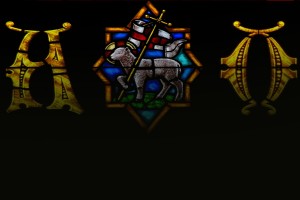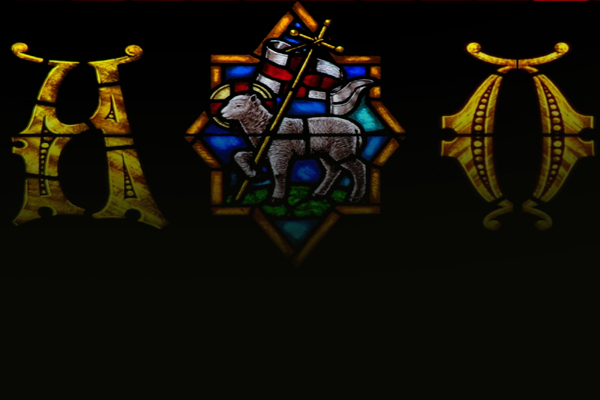
A Transcendent Source of Order
Human governments come and go, providing order and structure for a season until they are eventually replaced by the next successive movement. Some governments have been more just than others; none have been ideal. As a Christian, I acknowledge God as the transcendent, unchanging source of all order in our world; this order is a reflection of His nature. The laws of “nature” are simply the laws of God. As Christians, we are called to live a life reflecting God’s orderly nature (regardless of which form of human government we may be experiencing at the time):
1 Corinthians 14:33
For God is not a God of disorder but of peace.
2 Timothy 1:6-7
For God did not give us a spirit of timidity, but a spirit of power, of love and of self-discipline.
Even those who deny God find themselves acknowledging His existence, whether they realize it or not:
Romans 2:13-16
The Gentiles do not have the Law; but whenever they do by instinct what the Law commands, they are their own law, even though they do not have the Law. Their conduct shows that what the Law commands is written in their hearts. Their consciences also show that this is true, since their thoughts sometimes accuse them and sometimes defend them.
A Transcendent Source of Hope
We are inclined, as fallen humans, to place our hope and trust in people, possessions, or power. These transient, frail substitutes cannot compare to the transcendent Creator of the Universe, however. Although we hope for things in this life, the ultimate hope at the core of every human heart is the hope of eternity; the hope we will live beyond this life. Most people possess this kind of hope; the hope of life after the grave. This hope is rooted in a theistic worldview; an immaterial God created “soulish” beings in His image, and our dual nature allows us to live beyond the death of our material bodies. Our hope, as Christians, is rooted in the all-powerful nature of God:
John 17:3-4
Now this is eternal life: that they may know you, the only true God, and Jesus Christ, whom you have sent.
Psalm 71:5
For you have been my hope, O Sovereign LORD, my confidence since my youth.
Hope rooted in theism is multi-facetted. Theism offers a hope of heaven, but it also provides hope for today. Those who believe in an immutable, personal God have an unflinching hope for both the future and the present:
Psalm 95:3-7
For the LORD is the great God, the great King above all gods. In his hand are the depths of the earth, and the mountain peaks belong to him. The sea is his, for he made it, and his hands formed the dry land. Come, let us bow down in worship, let us kneel before the LORD our Maker; for he is our God and we are the people of his pasture, the flock under his care.
Although we hope for things in this life, the ultimate hope at the core of every human heart is the hope of eternity; the hope we will live beyond this life. Share on X
A Transcendent Source of Purpose
There are two questions we struggle with as humans. They are the same two questions people have asked for thousands of years: “How did we get here?” and “Why are we here?” While cultures and people groups have assigned their own meaning and purpose over the centuries, theists across the globe live each day with transcendent conviction and determination. We believe we are here for a reason surpassing our temporal impact on history. We were designed by God for a purpose, and this purpose helps us persevere in difficult times. If we are convinced we are here for a transcendent reason, difficult times are easier to endure. We have a sense of mission, destiny and plan. We can enjoy more than the moment; we are part of a larger story. We care about the future and we care about our impact as a nation and as a people. Why? Because we believe God has a transcendent purpose for our lives:
Romans 8:28
And we know that all things work together for good to them that love God, to them who are the called according to [his] purpose.
While cultures and people groups have assigned their own meaning and purpose over the centuries, theists across the globe live each day with transcendent conviction and determination. Share on X
A Transcendent Object of Gratitude
Theism is a unifying source of gratitude. Gratitude is a close sibling of joy, peace and contentedness, and those who are able to develop and harness a grateful heart find happiness in ways the rest of us only envy. Think about the “Thank You” notes and cards you’ve sent over the years. In every expression of thanks, the verb “thank” is used in conjunction with an object, “you”. Do you realize without an object of thanks, there can be no thankfulness? Every time we say, “thank you” we are directing it toward someone, and there is a direct relationship between the degree of joy we experience and the object of our thanks. Do you remember when you were small and received a gift at Christmas time? Your happiness spilled over to the giver of the gift in the form of thankfulness. Theists ought to understand gratitude in a much more profound way. Every day is filled with the transcendent gift of life (and many other blessings). These blessings come from someone. They come from an eternal God who is the source of all good things and the object of every “thank you”. As theists, we ought to move from occasional gratefulness toward someone who has given us a temporal gift, toward a heart of extended gratitude for the Giver of all good things. Gratitude in this sense is not a moment in time, but rather a life long journey:
Colossians 3:16-17
“…sing psalms, hymns and spiritual songs with gratitude in your hearts to God. And whatever you do, whether in word or deed, do it all in the name of the Lord Jesus, giving thanks to God the Father through him.”
Every time we say, thank you, we are directing it toward someone, and there is a direct relationship between the degree of joy we experience and the object of our thanks. Share on X
As an atheist, I had order, hope, purpose and gratitude in my life, but if I am honest, they were often fleeting and fragile. More importantly, my ideas about these concepts were highly personal and subjective. My friends and I did not always share these beliefs; we did not form community around the transcendent nature of such truths. As a theist, I have an unflinching (and unifying) confidence in the order, hope, and purpose resulting from God’s existence, and as a result, my gratitude is more consistent and unwavering. I’m not a Christian because I long for these realities, but they are the logical consequence of a theistic worldview.

J. Warner Wallace is a Dateline featured Cold-Case Detective, Senior Fellow at the Colson Center for Christian Worldview, Adj. Professor of Christian Apologetics at Talbot School of Theology, Biola University, author of Cold-Case Christianity, God’s Crime Scene, and Forensic Faith, and creator of the Case Makers Academy for kids.
Subscribe to J. Warner’s Daily Email
J. Warner Wallace is a Dateline featured cold-case homicide detective, popular national speaker and best-selling author. He continues to consult on cold-case investigations while serving as a Senior Fellow at the Colson Center for Christian Worldview. He is also an Adj. Professor of Christian Apologetics at Talbot School of Theology, Biola University, and a faculty member at Summit Ministries. He holds a BA in Design (from CSULB), an MA in Architecture (from UCLA), and an MA in Theological Studies (from Gateway Seminary).

































Pingback: Early June 2019 Presuppositional Apologetics’ Links | The Domain for Truth
Pingback: Four Distinct Advantages of a Theistic Worldview | The Culture Alternative